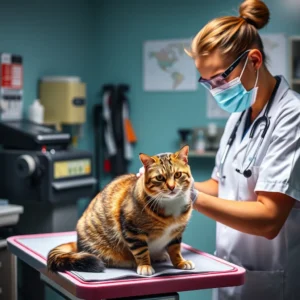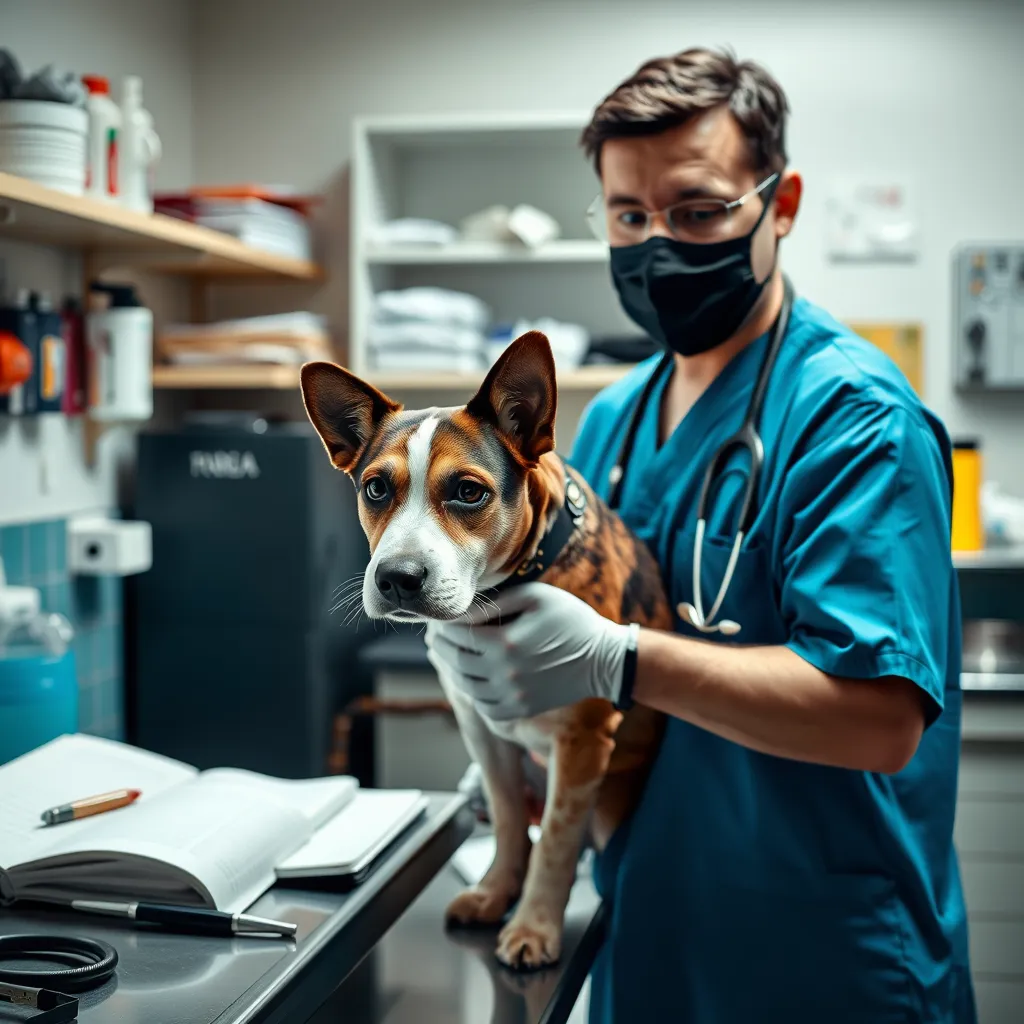Veterinary practices are essential for maintaining animal health, providing medical care to pets and livestock. However, these practices require substantial financial resources for equipment, facilities, and personnel. Business loans are a critical source of capital for veterinarians to start, expand, or improve their practices.
These loans enable veterinary clinics to cover various expenses, including medical equipment purchases, facility renovations, staff recruitment, and marketing initiatives. Without access to such financing, veterinary practices may struggle to meet their financial obligations and maintain high standards of animal care. Business loans also serve as a financial safety net for veterinary practices, helping them navigate unexpected challenges such as sudden increases in operating costs or revenue declines.
By securing access to capital through loans, veterinary clinics can ensure continuity of high-quality care for their patients without compromising service standards. Ultimately, business loans play a vital role in the sustainability and growth of veterinary practices, allowing them to invest in infrastructure, technology, and human resources to meet the changing needs of clients and patients.
Key Takeaways
- Business loans are important for veterinary practices to cover various financial needs such as equipment purchases, expansion, and cash flow management.
- Veterinary practices have unique financial needs including equipment purchases, facility expansion, and seasonal fluctuations in cash flow.
- Types of business loans available for veterinary practices include equipment financing, working capital loans, and SBA loans.
- Qualifying for a business loan for veterinary practices requires a strong credit history, detailed business plan, and collateral in some cases.
- Utilizing business loans for veterinary practices can lead to improved cash flow, expansion opportunities, and the ability to invest in new technology and services.
Understanding the Financial Needs of Veterinary Practices
Meeting Ongoing Expenses
In addition to these initial investments, veterinary practices also need to allocate funds for ongoing expenses such as marketing and advertising efforts to attract new clients and retain existing ones. Moreover, maintaining a modern and welcoming facility is essential for creating a positive experience for both pet owners and their animals.
Preparing for the Unexpected
Veterinary practices may also encounter unexpected costs such as emergency repairs, regulatory compliance, or unforeseen economic downturns. Understanding these financial needs is crucial for veterinary practice owners to make informed decisions about the type and amount of business loans they require.
Utilizing Business Loans Effectively
By having a clear understanding of their financial needs, veterinary practices can effectively utilize business loans to address immediate expenses and invest in long-term growth opportunities. This enables them to make strategic decisions about their financial resources and achieve long-term success.
Types of Business Loans Available for Veterinary Practices

Veterinary practices have access to a variety of business loan options tailored to their specific needs. One common type of business loan is a term loan, which provides a lump sum of capital that is repaid over a set period with fixed or variable interest rates. Term loans are ideal for veterinary practices looking to make significant investments in equipment, facilities, or expansion projects.
Another option is a line of credit, which provides veterinary practices with access to a revolving credit line that can be used for ongoing expenses or unexpected costs. This type of business loan offers flexibility and convenience, allowing veterinary practices to borrow and repay funds as needed. Additionally, veterinary practices may also consider equipment financing, which specifically covers the cost of purchasing medical equipment such as X-ray machines, surgical tools, or laboratory instruments.
Equipment financing allows veterinary practices to acquire essential equipment without depleting their working capital or savings. For veterinary practices looking to purchase or renovate real estate for their practice, commercial real estate loans are available to finance the acquisition or improvement of property. By understanding the different types of business loans available, veterinary practices can choose the most suitable option that aligns with their financial goals and operational needs.
How to Qualify for a Business Loan for Veterinary Practices
| Qualification Criteria | Description |
|---|---|
| Credit Score | A good personal and business credit score is typically required. |
| Business Plan | A detailed business plan showcasing the practice’s financial projections and growth strategy. |
| Collateral | Collateral may be required to secure the loan, such as business assets or personal assets. |
| Financial Statements | Recent financial statements including profit and loss statement, balance sheet, and cash flow statement. |
| Experience | Demonstrated experience in veterinary practice management. |
Qualifying for a business loan for a veterinary practice requires careful preparation and documentation to demonstrate the practice’s financial stability and ability to repay the loan. Lenders typically evaluate the creditworthiness of the veterinary practice by reviewing its credit score, revenue history, and cash flow. A strong credit score indicates the practice’s ability to manage debt responsibly and make timely repayments.
Additionally, lenders may assess the practice’s revenue history to ensure consistent income and assess its ability to generate profits. Furthermore, lenders may also require veterinary practices to provide collateral, such as real estate or equipment, to secure the loan. Collateral provides lenders with assurance that the loan will be repaid even if the practice encounters financial difficulties.
In some cases, lenders may also request a detailed business plan outlining the practice’s operations, market analysis, and financial projections. By demonstrating a clear understanding of their business and presenting a comprehensive plan for growth and sustainability, veterinary practices can improve their chances of qualifying for a business loan.
The Benefits of Utilizing Business Loans for Veterinary Practices

Utilizing business loans offers numerous benefits for veterinary practices seeking to grow and thrive in a competitive market. One of the primary benefits is access to capital for making essential investments in equipment, facilities, and technology. By leveraging business loans, veterinary practices can stay at the forefront of medical advancements and provide superior care to their animal patients.
Additionally, business loans can also support the expansion of services or the opening of new locations, allowing veterinary practices to reach more clients and communities. Moreover, business loans can provide financial stability during challenging times, such as economic downturns or unexpected expenses. Having access to capital through business loans enables veterinary practices to weather financial uncertainties without compromising on the quality of care they provide.
Furthermore, by making timely repayments on business loans, veterinary practices can improve their creditworthiness and establish a positive relationship with lenders for future financing needs. Overall, utilizing business loans strategically can position veterinary practices for long-term success and sustainability in a dynamic industry.
Tips for Choosing the Right Business Loan for Your Veterinary Practice

Assessing Funding Requirements
When selecting a business loan for a veterinary practice, it’s crucial to consider several key factors to ensure the loan aligns with the practice’s financial goals and operational needs. Veterinary practice owners should first assess their specific funding requirements and determine the amount of capital needed to achieve their objectives. This could include purchasing new equipment, expanding facilities, or hiring additional staff.
Comparing Lenders and Loan Products
It’s essential to compare different lenders and loan products to find the most favorable terms and interest rates. Veterinary practice owners should review the repayment terms, interest rates, fees, and any additional requirements from each lender before making a decision.
Seeking Professional Guidance
Seeking guidance from financial advisors or industry experts can provide valuable insights into choosing the most suitable business loan for a veterinary practice. By carefully evaluating their options and seeking professional advice, veterinary practice owners can make informed decisions that support their long-term success.
The Future of Veterinary Practice Growth with Business Loans
The future of veterinary practice growth is closely tied to the availability and strategic use of business loans. As the demand for high-quality animal care continues to rise, veterinary practices will need access to capital to invest in advanced medical technologies, expand their services, and enhance their facilities. Business loans will play a pivotal role in supporting the growth and innovation of veterinary practices by providing the necessary funding for these initiatives.
Furthermore, as the veterinary industry evolves with new treatment methods and healthcare standards, business loans will enable practices to stay competitive and meet the changing needs of pet owners and animal patients. Whether it’s adopting telemedicine solutions, implementing sustainable practices, or diversifying service offerings, business loans will empower veterinary practices to adapt and thrive in an ever-changing landscape. In conclusion, business loans are indispensable for the success and sustainability of veterinary practices.
By understanding their financial needs, exploring different loan options, and leveraging capital strategically, veterinary practices can position themselves for growth and excellence in animal care. As the industry continues to evolve, business loans will remain a vital resource for veterinary practices looking to make a lasting impact on animal health and well-being.
FAQs
What are business loans for veterinary?
Business loans for veterinary are financial products specifically designed to help veterinarians and veterinary practices with their financial needs. These loans can be used for various purposes such as expanding the practice, purchasing new equipment, hiring staff, or covering day-to-day operational expenses.
How do business loans for veterinary work?
Business loans for veterinary work like any other business loan. The veterinarian or veterinary practice applies for the loan with a lender, and if approved, receives a lump sum of money. The borrower then repays the loan amount, plus interest, over a predetermined period of time.
What are the typical requirements for obtaining a business loan for veterinary?
The requirements for obtaining a business loan for veterinary may vary depending on the lender, but typically include a strong credit history, a solid business plan, proof of income, and collateral. Lenders may also consider the veterinarian’s or practice’s financial stability and industry experience.
What are the benefits of business loans for veterinary?
Business loans for veterinary can provide veterinarians and veterinary practices with the necessary funds to grow and expand their business. These loans can also help cover unexpected expenses, improve cash flow, and invest in new technology or equipment.
Are there different types of business loans for veterinary?
Yes, there are different types of business loans for veterinary, including term loans, lines of credit, equipment financing, and Small Business Administration (SBA) loans. Each type of loan has its own terms, interest rates, and repayment options.

